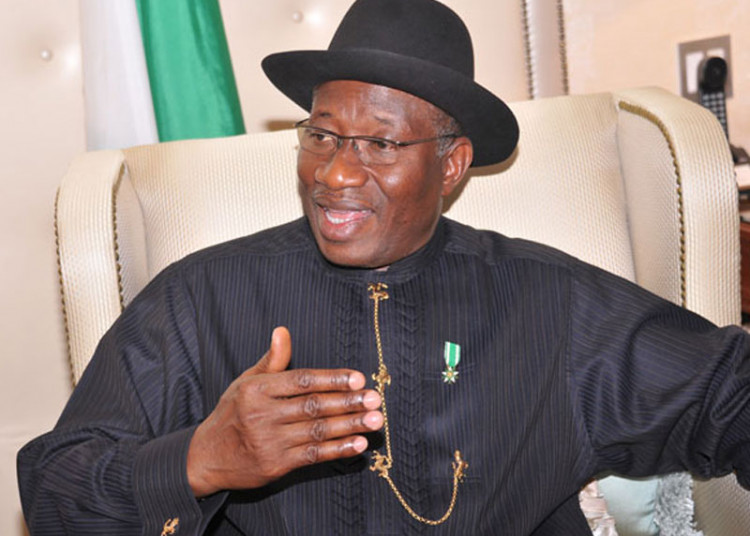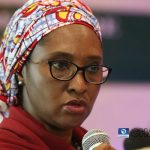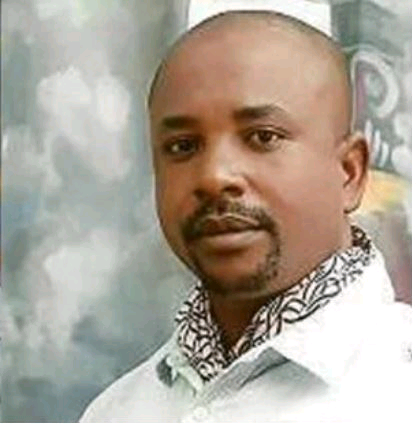Former President Goodluck Jonathan of Nigeria on Thursday weighed in on the raging agitation for the restructuring of Nigeria, warning that restructuring alone cannot solve the problem of the country.

He called for the restructuring of Nigerians’ mindset first before that of the country.
Jonathan, who spoke at a summit in Abuja along with a chieftain of the pan Yoruba socio-political organisation, Afenifere, Chief Ayo Adebanjo; a former President of Ohanaeze Ndigbo, Chief John Nwodo, and Chairman of the Arewa Consultative Forum (ACF), Chief Audu Ogbeh, said Nigeria must also tackle nepotism, ethnicity and religious bias before restructuring.
Jonathan, Adebanjo, Nwodo and Ogbeh spoke at the 18th Daily Trust Dialogue with the theme: “Restructuring: Why? How?”
However, Adebanjo and Nwodo demanded the restructuring of Nigeria before the next general election.
Ogbeh expressed doubt that the country could return to the regional system of government where each region had control of resources at its domain.
Jonathan, who chaired the event, said the country must come up with specific solutions to its problems.
“Discussion on restructuring will not help except we restructure our mindset,” he said, explaining: “Some of the challenges faced at the national level are still there at the state and local government levels and sometimes even in our communities.”
He frowned upon the manner states conduct local government elections.
According to him, Nigerians have mutual suspicions towards one another and this must be addressed to have a better nation.
He said: “We cannot restructure without solving issues that polarise us; nepotism, ethnic and religious differences and lack of patriotism.”
Jonathan said the regional government in operation before the civil war was restructured to 12 states by Gen. Yakubu Gowon (rtd) to save the country from disintegration after coming out of the civil war.
He added that the country must design a solution in line with its peculiar issues, while making reference to Ghana and Tanzania’s situations.
He said Tanzania, at a time, had to turn to a one-party system to build unity and put the country back on the path of development.
Jonathan, however, clarified that he was not advocating a unitary system of government in Nigeria, adding that federalism is still the best for the country.
He urged Nigerian leaders to encourage conversations that will encourage nationalism.
He said: “Let’s do our little best in our little corner to make the country great. The leaders and citizens should not lose hope in the nation as the future is bright.
“All nations have their unique history, the amalgamation is not our problem but the divisive politics politicians play has greatly affected our nation’s unity and that was the reason my administration conducted the 2014 national conference for the specific purpose of addressing the people that have been agitating the minds of our people. As a country, we have our peculiar challenges and we should devise means of solving them.
“My conviction is that discussion on restructuring will not help except we restructure our minds because some of the challenging issues at the national level still exist at the state and local levels.
“How do we restructure to make sure that those things don’t happen again? This shows restructuring alone may not solve all the anomalies in our system. I believe that restructuring for a better nation is good but there are other fundamental issues we should also address.
“We cannot restructure in isolation without tackling the challenges that polarise our nation. These include nepotism, ethnic and religious differences as well as lack of patriotism. The issues of tribe and religion have continued to limit our unity and progress as a nation.”
Also contributing virtually, Adebanjo stressed the need to convoke a constitutional conference, adding that the 1999 Constitution is illegal.
He also called for a conference to iron out the problems affecting the country.
He disagreed with a former Independent National Electoral Commission (INEC) Chairman, Prof. Attahiru Jega, that some states will not agree to lose their sovereignty.
The Afenifere leader added that it is better to restructure before the 2023 elections.
He said the 2014 National Conference report and the various constitutions in the country should serve as a template for the constitutional review and restructuring.
Jega asked a fundamental question of whether states would be willing to drop their sovereignty during restructuring, and called for power devolution in the areas of education and power, among others.
Nwodo said the North will benefit more in food production if there is restructuring.
He also called for devolution of power from the centre to the states.
He said even though he was a member of the Federal Executive Council, no member of the council saw a copy of the 1999 Constitution before former President Olusegun Obasanjo’s government was inaugurated.
On why Nigeria need restructuring, he said: “We should restructure because the constitutional history of Nigeria shows that the only constitutions of the Federal Republic of Nigeria made by all the ethnic groups in Nigeria were the 1960 and 1963 Constitutions.
“The 1999 Constitution overthrew the sovereignty of the regions over their national resources and domestic security unleashing in the process an unprecedented fall of education standards, domestic security, and economic wellbeing.
“To restructure Nigeria, we need a constitutional conference of all the ethnic groups in Nigeria.
“To use the current National Assembly as the forum for constitutional amendments grants a tacit recognition of the overthrow of our democratic norms by the enthronement of a military constitution by which they are composed.”
He said the outcome of the constitutional conference must be subjected to a plebiscite in which all adult Nigerians should have the right to vote.
But Ogbeh said it was unlikely for the country to return to the regional system of government where each region had control of resources at its domain.
Ogbeh stated that the shape by which restructuring would take was still unclear even if it was a necessary thing to be done.
“In dealing with the problems confronting us, restructuring is absolutely necessary. In what shape is the question to ask. Will states surrender their autonomy like Prof, Jega asked? Very unlikely. Are we returning to the regions of 1960? Very unlikely. That is where the problem lies,” Ogbeh said.
Ogbeh, who had earlier protested the exclusion of the ACF among other speakers at the programme, also lamented the extinction of standard factories nationwide, saying only Kano lost 126 factories in a few years.
According to him, “The economy of this country is dying so fast and that is where the tragedy is coming from. And that is why our children and grandchildren, the young ones coming behind, should realise they have no future.
“What we say influences the opinions of those who have no opinions of their own. We are too hot and too angry. The big issue is the economy of this country. How many of us can count the numbers of factories that have died in this country? From the South-west to the North and to the East.
“Kano alone, 126 factories have gone down. We are talking about creating jobs. You cannot take a loan from the bank that is a five per cent interest rate. Even if you are trading in cocaine, you can’t make it.”
Source: ARISE News







